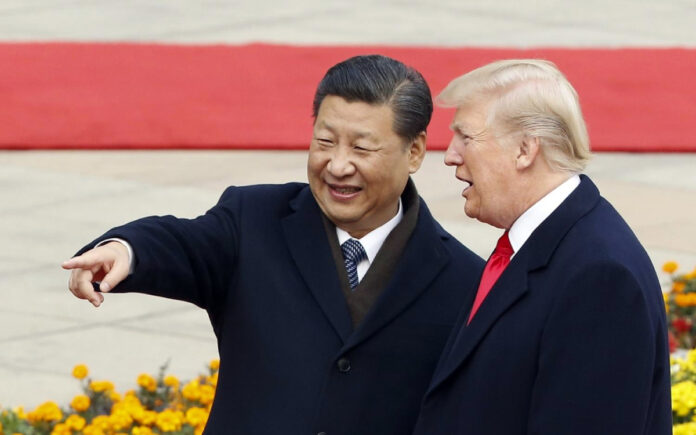Washington: U.S. President Donald Trump on Thursday voiced strong optimism about the prospect of a new trade agreement with China, even as economic tensions between Washington and Beijing continue to escalate amid an aggressive tariff strategy by his administration.
Responding to a reporter’s question at the White House about potentially contacting Chinese President Xi Jinping, Trump said, “Oh we’re going to make a deal. I think we are going to make a very good deal with China.”
Trump’s remarks came just days after the White House unveiled a sweeping increase in tariffs on Chinese imports. According to a newly released fact sheet, some Chinese goods are now subject to duties as high as 245%, a dramatic escalation from prior levels.
The President defended the tariffs as a necessary countermeasure to what he described as decades of trade abuses and structural imbalances in the U.S.-China economic relationship. The move, however, was met with immediate condemnation from Beijing.
China’s Ministry of Commerce denounced the new tariffs, calling them irrational and accusing Washington of engaging in a “meaningless numbers game”. In a strongly worded statement, the ministry warned that it would “fight to the end” if the U.S. continued to apply what it sees as unwarranted economic pressure.
Earlier on the same day, Beijing also urged Washington to “stop applying extreme pressure” and instead demonstrate “mutual respect” if meaningful trade talks are to resume.
Despite the sharp rhetoric from both sides, Trump struck a notably upbeat tone during his joint appearance with Italian Prime Minister Giorgia Meloni, who was visiting the White House. The leaders discussed several issues, including trade and transatlantic cooperation.
On broader trade relations, Trump said, “We’re going to have very little problem making a deal with Europe or anybody else.” Meloni echoed that sentiment and positioned herself as a potential facilitator, saying, “I am sure we can make a deal, and I am here to help with that.”
Also Read | India Nears $700 Million BrahMos Missile Deal with Vietnam, Indonesia Could Be Next
Trump’s New Tariff Doctrine
The tariff increase is part of a wider policy shift under President Trump’s revived economic agenda, which includes a baseline 10% tariff on all imports. Countries with significant trade surpluses against the United States face additional “reciprocal” tariffs. Notably, while most trading partners were granted a 90-day grace period to negotiate exemptions, China was excluded from this pause—a decision widely seen as a sign of deepening strategic rivalry.
Economists have warned that the continued uncertainty could unsettle global markets, impact supply chains, and potentially drive inflation higher. Nevertheless, Trump dismissed these concerns, asserting that the United States remains in a strong position.
Also Read | Russia Blames Ukrainian Missile for Strike on Indian Pharma Warehouse in Kyiv
“We have something that everybody wants,” he said, without elaborating.
Prime Minister Meloni, who is scheduled to host U.S. Vice President JD Vance in Rome the following day, is increasingly seen as a bridge between Washington and European capitals at a time of shifting global alliances and trade recalibrations.



